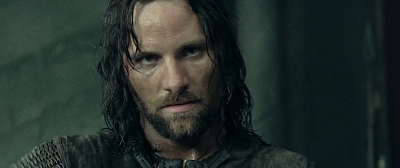Wednesday, October 9, 2013
Most Important Part to Translation?
When a book is translated between languages, a lot of information could potentially be lost. So with that in mind, we are going to analyze what the translator should carry over, and the issues faced to a translator.
First off, a book being translated should, without a doubt, carry over the basic plotline. That is a given in any situation. Supporting details and subplots are important to an extent, which depends on the novel selected. For example when translating between languages, it is easier to lose a detail in a book like Eragon - where the plot is quite linear, than A Game of Thrones - where there are literally hundreds of fairly important characters and multiple plot and subplot lines. On the same subject, dialogue should be pretty faithfully carried over, although vocabulary brings up an entire slew of issues. Different languages have different order of words, like for example in spanish, one would say la Casa blanca, literally "the house white." So in a situation like this, it just has to be translated as accurately as possible in the confinements of the language.
A translator has to make the book readable in a different language. And if he speaks two languages, it seems like an easy task right? From what we just saw previously, we would guess not. An author writes a book with a certain rhythm, a certain prose. A translator has to try to capture the author's style of writing, but in a different language. A word can have an entirely different number of syllables in a translation, a different order again, or any number of things.
So how important is all of this, realistically? So lets say the important parts of a book translation are keeping the prose and style of writing, keeping the plot the way it was written, and ensuring that side details and other important things are captured. How would I personally rate them, being an avid book reader and film student? First things first, the plot has to stay true. No doubt about that. After the main plot, I think making sure that the author's prose is captured. If the vocabulary is entirely different, how would people of different languages and ethnicities enjoy works like Shakespeare, which relies solely on his prose. But another priority on the same topic would be to make sure it is readable by the new audience. Only then do all of the supporting details and subplots become important.
During one scene in the movie The Lord of the Rings: The Two Towers, one of the main characters, Aragorn, is fighting a warg raiding party.During the battle, he falls off of a cliff, apparently to his death. (Though we find out later he doesn't die.) This scene does not exist in the slightest in the novel. In fact, in the multiple times I have read the novel, I don't recall a warg raid against the Rohirrim at all! There is artistic license for ya!
Let me know of any situations you have where people don't follow artistic license! Have a great one, and I'll see you all tomorrow!
Subscribe to:
Post Comments (Atom)

The idea is not that books are "translated" into another actual spoken language but translated into the language of film. When you "translate" a book to film, what key elements do you have to focus on to keep the story intact? Do you need to keep the story intact? Interesting questions, I think.
ReplyDelete